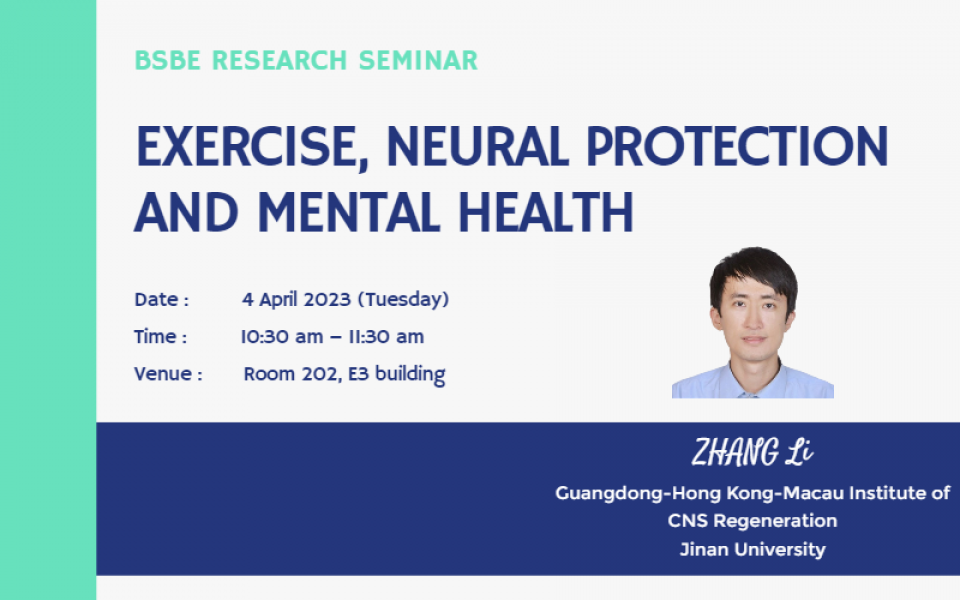Exercise, Neural Protection and Mental Health
Supporting the below United Nations Sustainable Development Goals:支持以下聯合國可持續發展目標:支持以下联合国可持续发展目标:
Abstract:
Exercise is one effective non-drug intervention for improving mental or cognitive disorders, and has been appreciated by its convenience and safety. Physical exercise is known to improve the neural plasticity across multiple brain regions, while its complete mechanism especially for the peripheral-central crosstalk, has not been fully understood. We have been focusing on the role of endurance exercise on dendritic spine formation and maintenance in brain (Science Advance 2019) and have found the homeostatic regulation of cortical excitatory-inhibitory (E/I) balance by exercise training (Molecular Psychiatry 2021). Recently, we are interested in studying the exercise-related peripheral factors, whose central mechanism is being investigated. In particular, we found the activation of biogenesis of a methyl donor metabolite in hepatic tissues under exercise paradigm, and the functional relevance of such metabolite in preventing anxiety-like disorders via modulating RNA methylation of synaptic transcripts in brain tissues (Advanced Science 2022). Moreover, we found the neuroprotective role of exercise-induced, adipocytic-derived clusterin to restore the cortical E/I balance via suppressing microglial complement pathway, thus retarding the onset of motor symptoms in a model of TDP-43 (Cell Reports 2023). These works collectively suggest the role of exerkines in improving brain health and provide further insights for the evaluation of exercise efficiency or the development of mental disease drugs.
Biography:
Dr. Li Zhang is currently a full professor in Guangdong-Hong Kong-Macau Institute of CNS Regeneration, Jinan University. He received both BSc and PhD degrees from the University of Hong Kong, and joined Jinan University since 2014. His major interest focuses on the peripheral-central mechanism of exercise in improving brain functions. In recent years, his work mainly investigate the role of peripheral exerkines in improving synaptic plasticity and brain functions. He has published more than 20 research articles in high-profile journals including Science Advances, Molecular Psychiatry, Cell Reports, Advance Science, National Science Review and Current Biology. He has received research fundings including the “China Brain Project” and National Natural Science Foundation of China.
